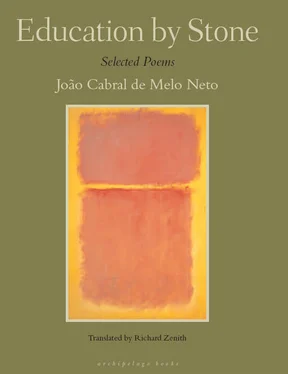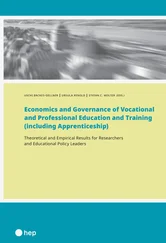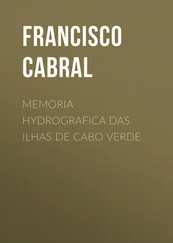*
Silencioso: quer fechado ou aberto,
inclusive o que grita dentro; anônimo:
só expõe o lombo, posto na estante,
que apaga em pardo todos os lombos;
modesto: só se abre se alguém o abre,
e tanto oposto do quadro na parede,
aberto a vida toda, quanto da música,
viva apenas enquanto voam suas redes.
Mas apesar disso e apesar de paciente
(deixa-se ler onde queiram), severo:
exige que lhe extraiam, o interroguem;
e jamais exala: fechado, mesmo aberto.
For the Book Fair
When leafed, the leaf of a book regains
the vegetable lassitude of green leaves,
and a book is leafed or loses its leaves
like the tree it came from, blown by the wind;
when leafed, the leaf of a book repeats
fricatives and labials of ancient winds,
and nothing feigns wind in the leaves of a tree
as well as wind in the leaves of a book.
And yet the leaf in the tree of the book,
more than mimicking, utters the wind;
its words move the voice, which is wind:
a gale that blows what is rotten away.
*
Silent whether closed or open,
including what shouts inside it; anonymous,
it shows only its spine when on the shelf,
which annuls all the spines in gray; modest,
it opens only when someone opens it,
unlike a hanging picture, which is open
all its life, and unlike music,
alive only while its lines are flying.
But despite this and despite its patience
(lets anyone, anywhere, read it), severe,
requiring that you dig in, interrogate it;
and even when open, closed: it never gives vent.
from Museu de tudo / Catchall Museum 1975
A insónia de Monsieur Teste
Uma lucidez que tudo via,
como se à luz ou se de dia;
e que, quando de noite, acende
detrás das pálpebras o dente
de uma luz ardida, sem pele,
extrema, e que de nada serve:
porém luz de uma tal lucidez
que mente que tudo podeis.
The Insomnia of Monsieur Teste
A lucidity which sees everything,
as if by lamp- or daylight,
and which, at nightfall, turns on
behind the eyelids the tooth
of a sharp and skinless light,
extreme and serving for nothing:
a light so lucid it fools you
into thinking you can do everything.
W. H. Auden
(
1905–1973
)
Se morre da morte que ela quer.
É ela que escolhe seu estilo,
sem cogitar se a coisa que mata
rima com sua morte ou faz sentido.
Mas ela certo te respeitava,
de muito ler reler teus livros,
pois matou-te com a guilhotina,
fuzil limpo, do ataque cardíaco.
W. H. Auden
(
1905–1973
)
We die the death death decides.
Death itself selects its method,
without caring whether the weapon
fits or rhymes with the victim.
But death apparently respected you
after reading and rereading your stanzas,
for it killed you with the guillotine,
the clean gun of a heart attack.
O artista inconfessável
Fazer o que seja é inútil.
Não fazer nada é inútil.
Mas entre fazer e não fazer
mais vale o inútil do fazer.
Mas não, fazer para esquecer
que é inútil: nunca o esquecer.
Mas fazer o inútil sabendo
que ele é inútil, e bem sabendo
que é inútil e que seu sentido
não será sequer pressentido,
fazer: porque ele é mais difícil
do que não fazer, e dificil —
mente se poderá dizer
com mais desdém, ou então dizer
mais direto ao leitor Ninguém
que o feito o foi para ninguém.
The Unconfessing Artist
Doing this or that is useless.
Not doing anything is useless.
But between doing and not doing,
better the uselessness of doing.
But no, doing to forget
is what’s useless — no one should forget.
But one can do what’s useless knowing
it’s useless, and although knowing
it’s useless and that its sense
cannot in any way be sensed,
still do: for it is harder
than not doing, and hardly
will one be able to say
with more disdain or say
more plainly to the reader Nobody
that what was done was for nobody.
Catecismo de Berceo
1. Fazer com que a palavra leve
pese como a coisa que diga,
para o que isolá-la de entre
o folhudo em que se perdia.
2. Fazer com que a palavra frouxa
ao corpo de sua coisa adira:
fundi-la em coisa, espessa, sólida,
capaz de chocar com a contígua.
3. Não deixar que saliente fale:
sim, obrigá-la à disciplina
de proferir a fala anônima,
comum a todas de uma linha.
4. Nem deixar que a palavra flua
como rio que cresce sempre:
canalizar a água sem fim
noutras paralelas, latente.
Berceo’s Catechism
1. Make the light word weigh
as much as the thing it tells
by isolating it from among
all the leaves it was lost in.
2. Make the loose word adhere
to the body of its referent,
fusing it into a solid, dense thing,
able to clash with the one next to it.
3. Don’t let its speech stick out
but impose the discipline
of speaking anonymously —
just another word in the line.
4. And don’t let the word flow,
like a river that keeps growing,
but channel the endless water
into parallel, unseen streams.
As águas do Recife
Os dois
touros
1. O mar e os rios do Recife
são touros de índole distinta:
o mar estoura no arrecife,
o rio é um touro que rumina.
Quando o touro mar bate forte
nele há o medo de não ficar,
de ter saído, de estar fora,
de quem se recusa a ser mar.
E há no outro touro, o rio,
entre mangues, remansamente,
mil manhas para não partir:
anda e desanda, ainda, sempre.
Mas se são distintos na ação,
mesma é a razão de seu atuar:
tentam continuar a ser da água
de aquém do arrecife, antemar.
de braço
2. Eis por que dentro do Recife
as duas águas vivem lutando,
jogando de queda de braço
entre os muros dos cais urbanos.
A que é mar porque, obrigada,
saltou o quebra-mar do porto
vem, cada maré, desafiar
a água ainda rio para o jogo.
A água que remonta e a que desce
travam então uma queda de braço:
aplicadamente e em silêncio,
equilibradas por espaços.
Um certo instante estão imóveis,
nem maré alta nem baixa, ao par;
até que uma derruba e vence,
e ao vencer, perder: se exilar.
bulls
1. The sea and the rivers of Recife
are bulls with different temperaments:
the sea stampedes against the reef,
the river is a bull that ruminates.
The bull that is sea beats hard
because it escaped, it is free
and dreads being pulled back in;
it no longer wants to be sea.
Standing in coastal swamps,
the other bull, the river,
has a thousand tricks for lingering:
it starts and stops, over and over.
Although their actions are different,
their reason for acting is the same:
they try to continue as water
on the reef’s near side, before sea.
wrestle
2. That is why inside Recife
the two waters live in conflict,
engaging in a daily arm-wrestle
between the walls of the city docks.
The water that’s sea, forced
to jump the jetty of the port,
comes with each tide to challenge
the water that’s still river to fight.
One rising and the other falling,
the waters begin their arm-wrestle,
assiduously and in silence,
now gaining, now losing, by turns.
For a moment they stand off, immobile
— neither high nor low water, but tied —
until one of them finally prevails,
and in winning, loses: it is exiled.
Читать дальше










